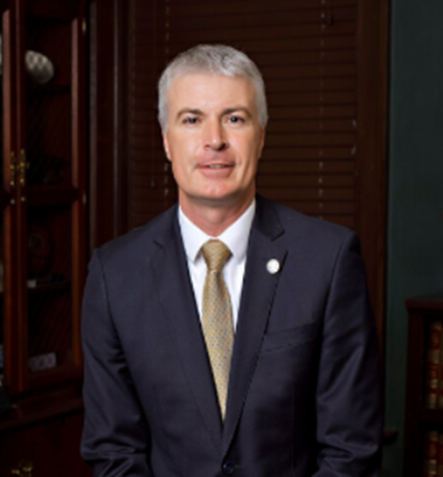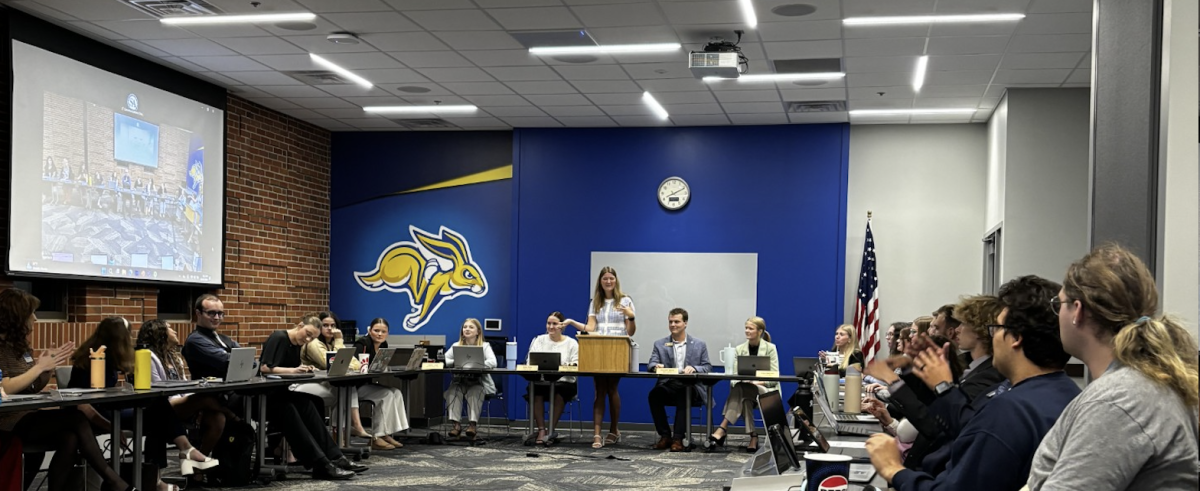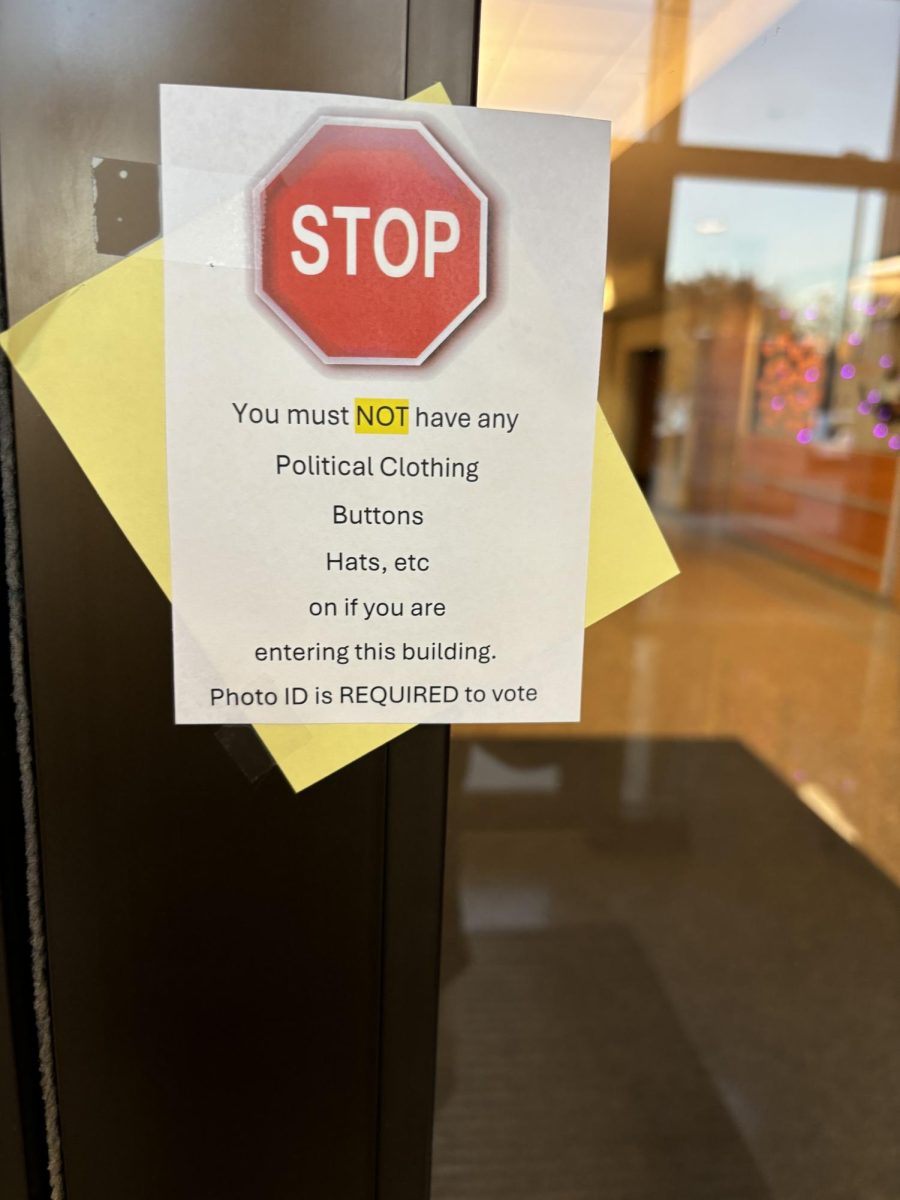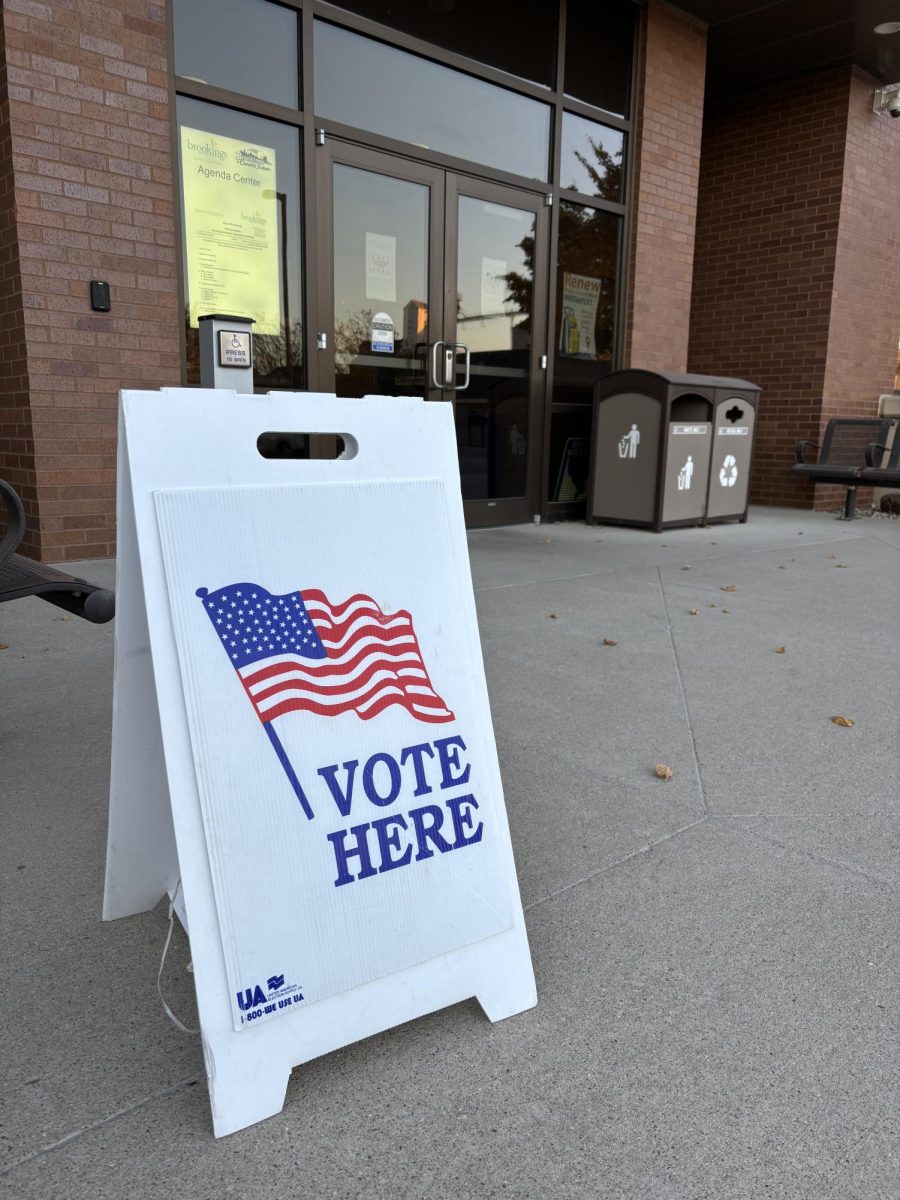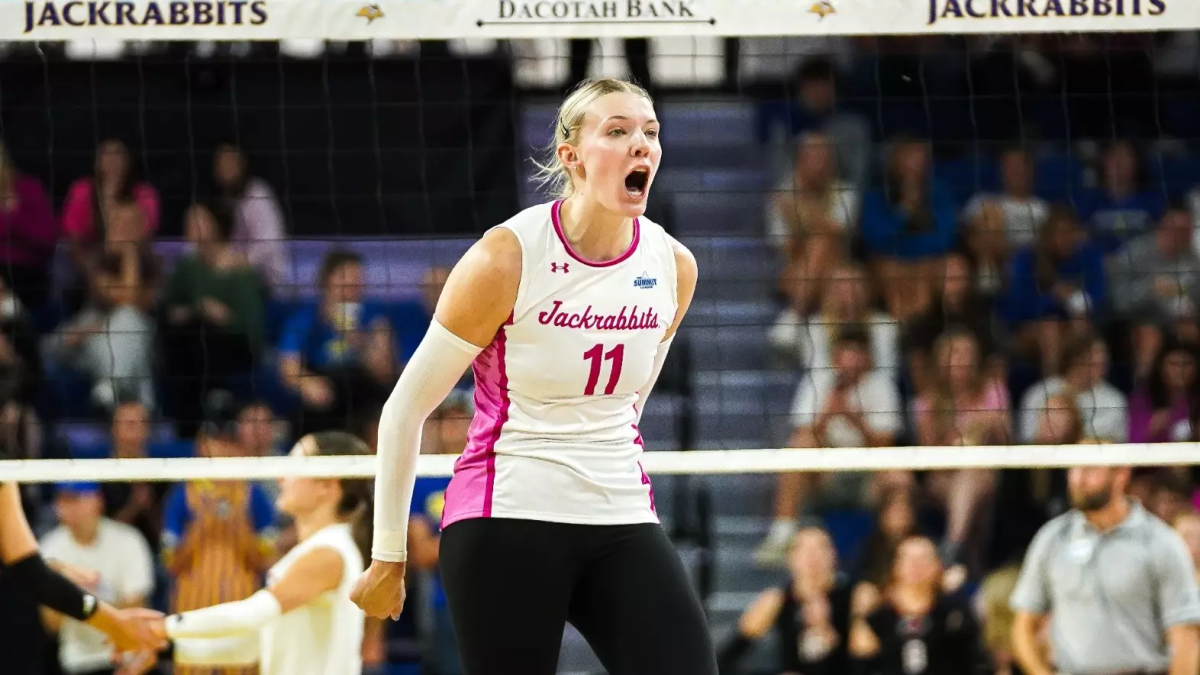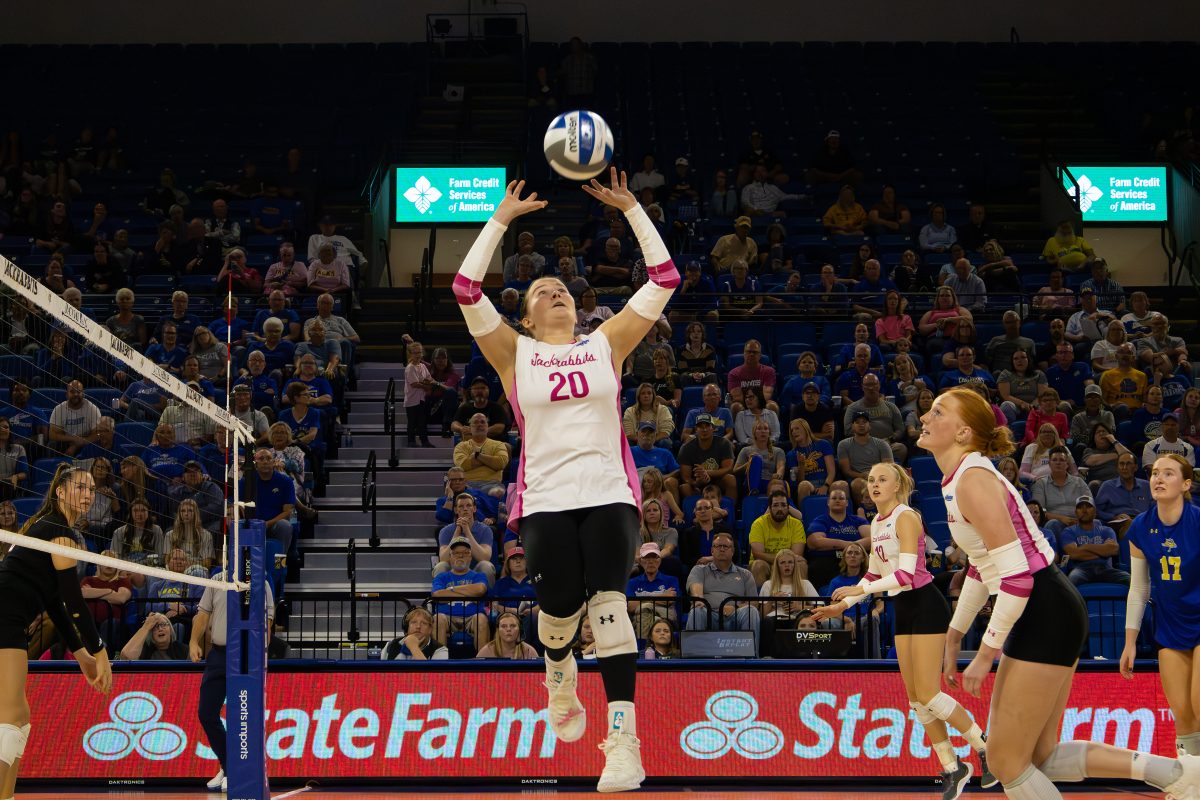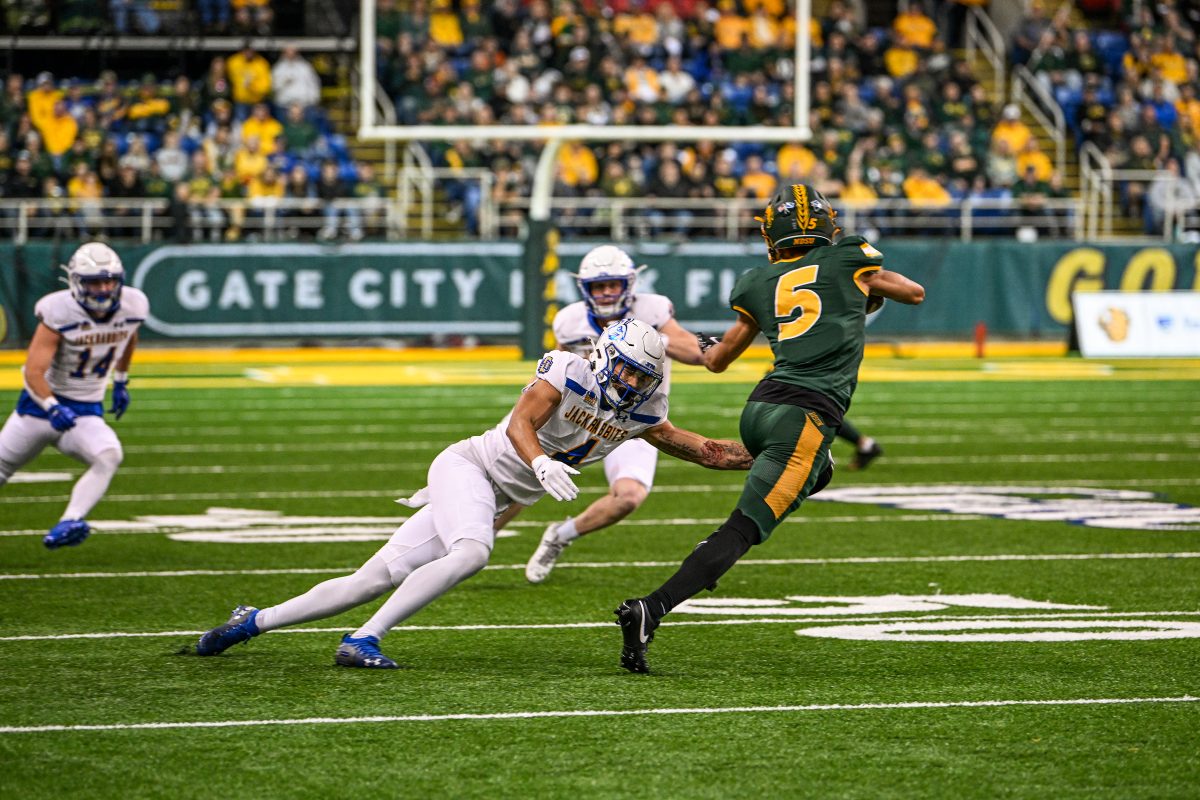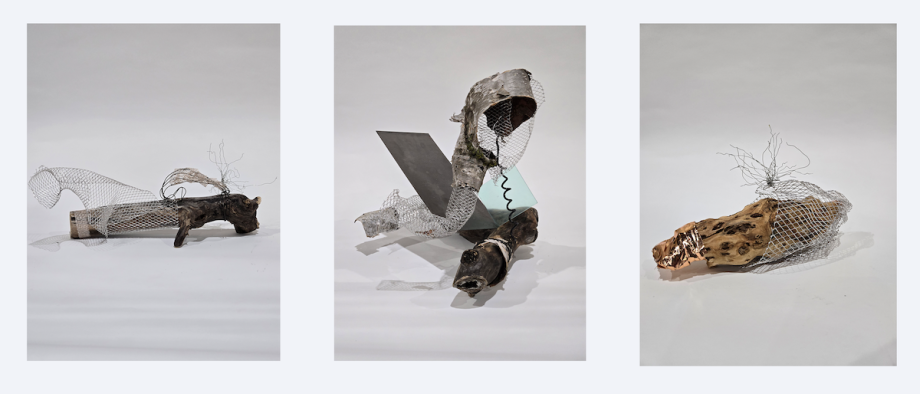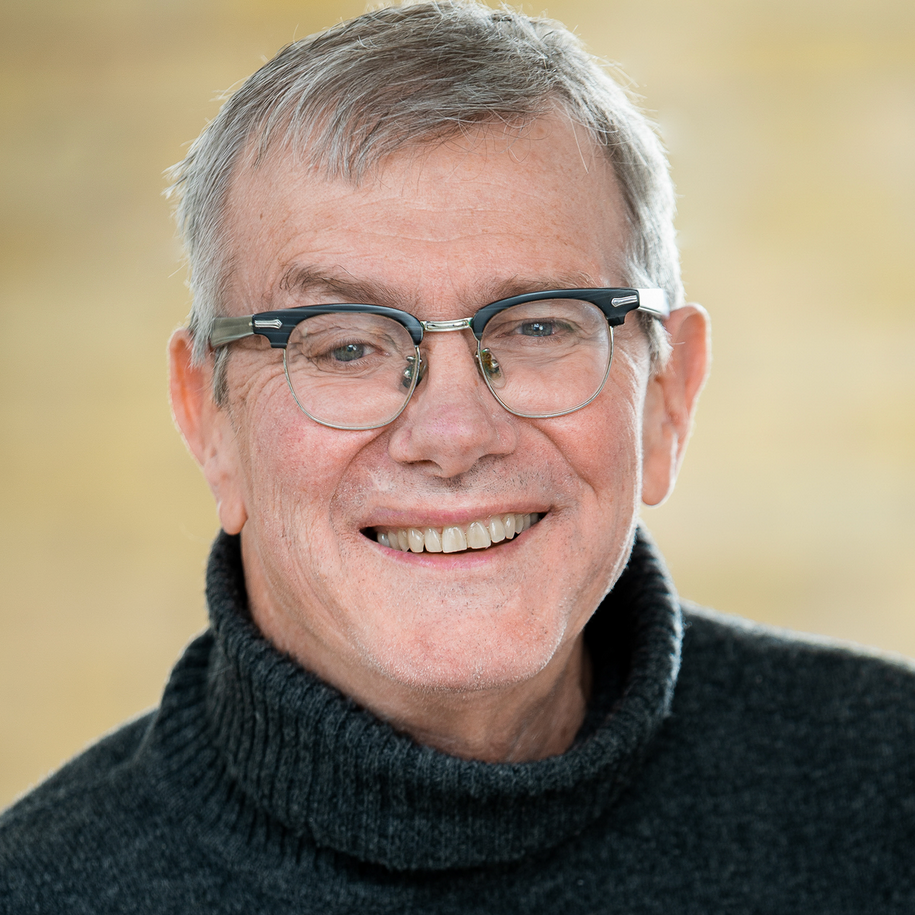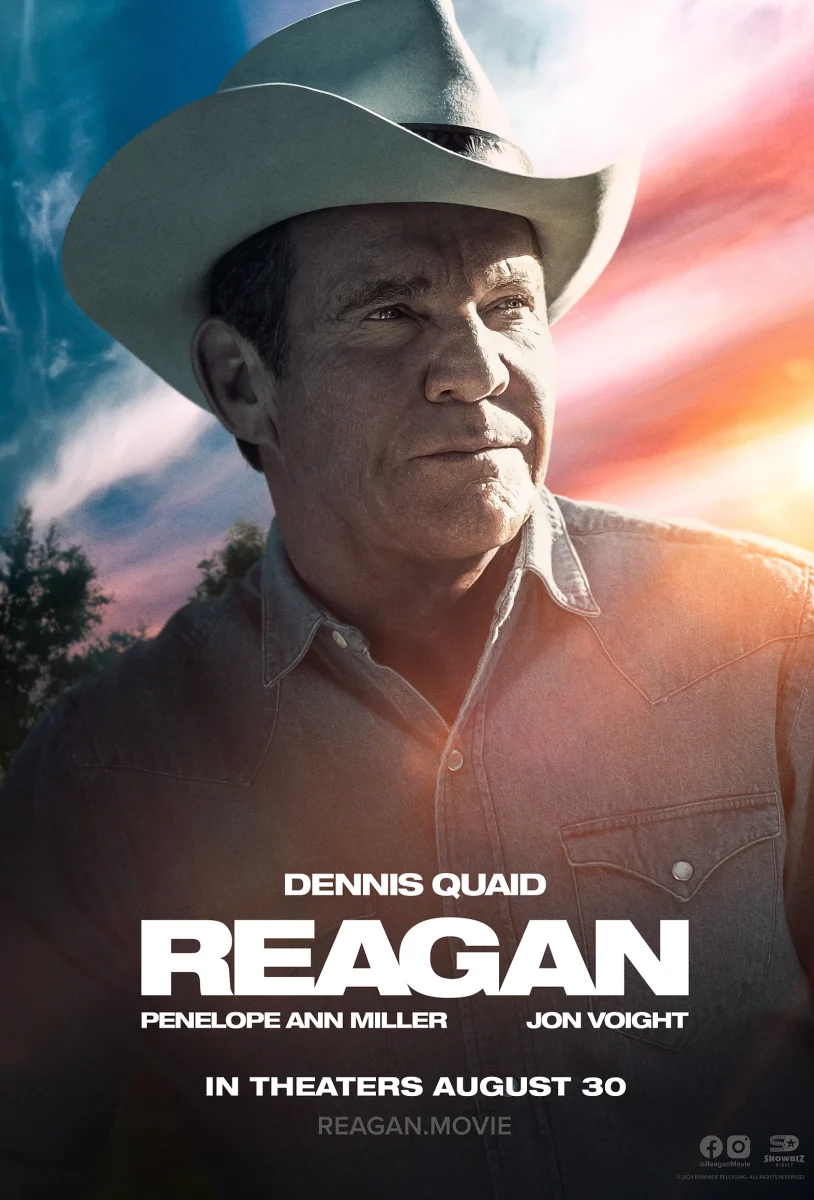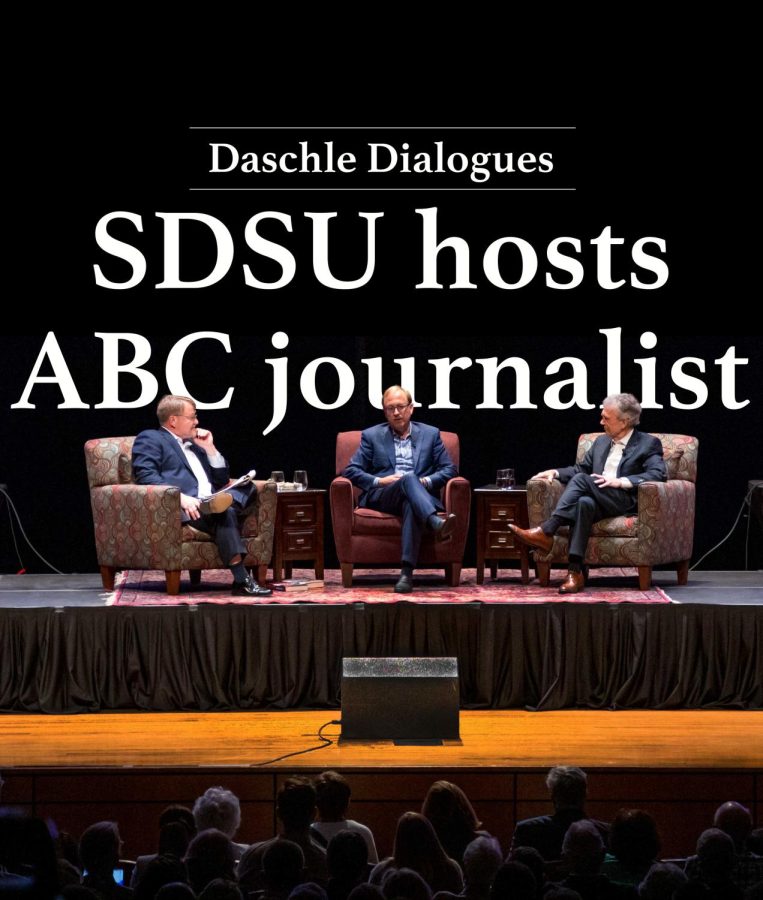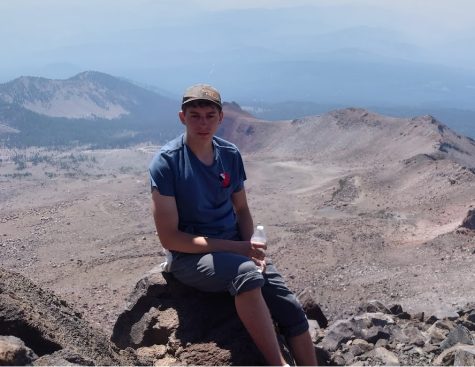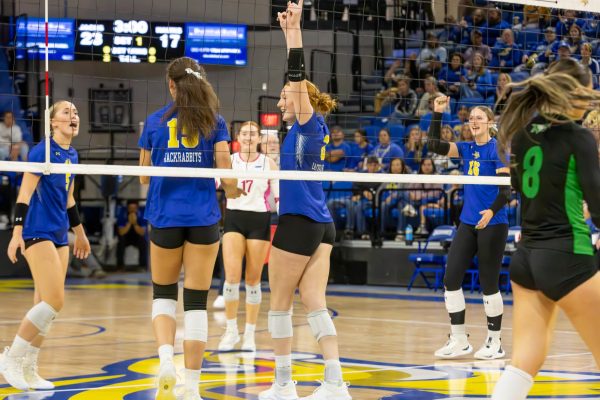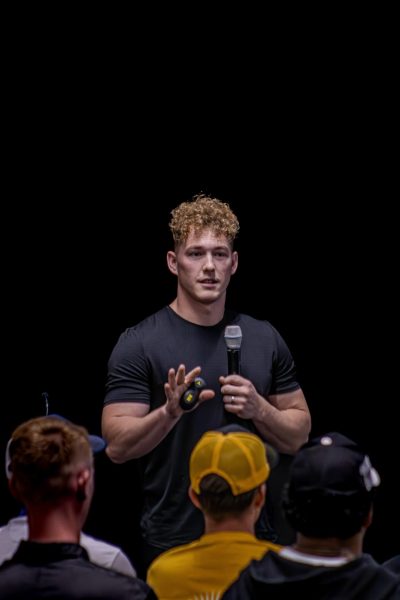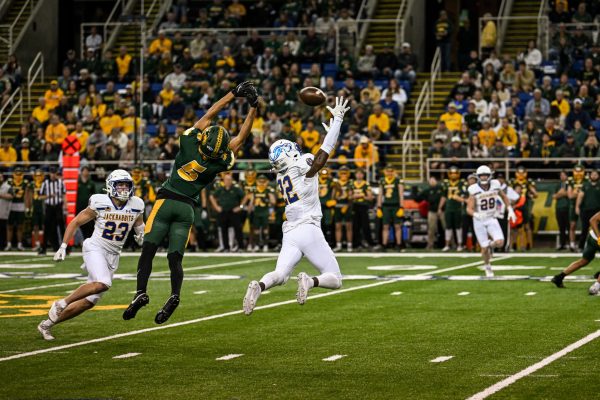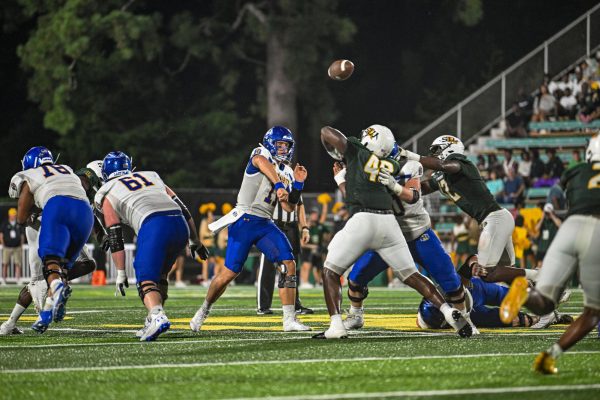SDSU hosts ABC Journalist; Jonathon Karl talks politics, Trump, journalism at SDSU event
University Marketing and Communication
Chuck Raasch leads discussion during the Daschle Dialogues event with Jonathan Karl and Senator Tom Daschle Sunday night at the Performing Arts Center.
September 27, 2022
A nationally recognized television journalist made his way to South Dakota State University this past weekend where he shared his experiences in Washington and discussed a political snapshot of where the country and the world is today.
In the two-hour event Sunday night, ABC News’ Chief Washington Correspondent Jonathan Karl joined former U.S. Senator from South Dakota Tom Daschle on stage. Karl and Daschle commented on the heated political climate, bipartisanship, foreign policy, the Jan. 6 insurrection and the peculiarity of covering the White House through the Trump Administration.
“There’s a quote attributed to Vladimir Lenin that says, ‘there are decades where nothing happens, and there are weeks when decades happen,’” Karl said. “I feel we’ve been through so many of those.”
Serving as ABC’s Chief White House correspondent from 2012 to 2021, Karl had a front-row seat to some of the most heated stories of the century: COVID-19, the 2020 election, and the Jan. 6 riot at the capital.
An exchange that made Karl even more widely recognized came during the initial outbreak of COVID-19. Then-President Donald Trump was on record saying the coronavirus was more deadly than the flu, but had toned down the severity of the virus when speaking publicly.
“There was a moment that came in early September 2020 where I asked a question that I never thought I’d have to ask a president,” Karl said during a Q&A with political science students. “I [asked] ‘why did you lie to the American people? Why should we trust anything you say now?’ … This was about COVID. It wasn’t like he got it wrong … He knew what was right and said the exact opposite.”
During Karl’s position as Chief White House correspondent, the 45th president baited him with various nicknames, including “Third-rate Reporter,” “Disgrace to ABC” and even “Cutie-pie” one time.
“He’s the president of the United States, and whatever he’s saying about me or my profession or my colleagues doesn’t matter,” Karl said about his thoughts at the time. “I need to treat him with respect and I need to move ahead with my questions and my reporting.”
Karl has also faced the ire of the left for pressing former President Barack Obama on tough issues and again more recently for tweeting that Vice President Kamala Harris had taken more questions from the cast of The Avengers than she had from the press at that point in her vice presidency.
“The first question [the vice president was asked by the cast]… was ‘what superhero would you like to be?’” said journalist and SDSU alumni Chuck Raasch as the audience erupted in laughter.
Karl’s mother, Audrey Shaff, joined Karl on stage to discuss her and her son’s connection to South Dakota. Growing up, Karl spent time in the Black Hills as his mother worked to piece together an oral history of Mount Rushmore. The mission carried them from town to town as they tracked down workers who constructed the monument. Shaff recounted the hospitality of the people they met. One worker from Modesto, California, was so enthused to talk about his work on Mount Rushmore that he invited Shaff to stay at his home overnight as she traveled.
“We stayed that night, and it was very nice,” Shaff said. “I went to bed, put my hand under the pillow, and there was a gun there!”
Karl was invited to SDSU as part of the Daschle Dialogues speaking series. The series, initiated by former Senate Majority Leader Daschle, was a way to give back to his alma mater by bringing influential speakers to SDSU. Past guests include NBC News’ Tom Brokaw, former Senate Majority Leader Trent Lott, former Secretary of State Madeleine Albright and historian and author Doris Kearns Goodwin.
Steve Erpenbach, President and CEO of the SDSU Foundation, works closely with Daschle to keep the Daschle Dialogues series going. Sunday’s event was the first installment of the series since Doris Kearns Goodwin spoke in 2019. For Erpenbach, the importance of continuing to bring thought-leaders to campus is paramount.
“To be able to see that caliber of people is a real benefit to the university, students and staff,” Erpenbach said.
For Erpenbach, the intimacy of the events is what makes the Daschle Dialogues series so engaging. It’s conversational—not prewritten.
Evren Celik Wiltse, an associate professor of political science at SDSU, agrees with the importance of hosting influential people, especially when they get to have discussions with students in small-group settings.
“We had like 20 people in that small setting,” Celik Wiltse said about the Q&A with political science students. “When students are applying for places, they can say this is what sparked their interest to take up public service positions.”
Senior economics major Grace Nelson said the “real-world” discussions helped her to better understand life in Washington D.C.
“I appreciated the thought-provoking questions and genuine answers from both Mr. Daschle and Mr. Karl,” Nelson said. “I could sense they were being very upfront and honest with us — something I greatly appreciate.”
Daschle’s official records from his time in congress are preserved on campus at the Hilton M. Briggs Library. They can also be accessed digitally through the university’s website.
South Dakota Public Broadcasting will air Daschle Dialogues Sunday, October 16 at 1 p.m.

